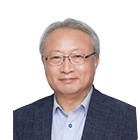Video
Publications
Issue Briefs
Publications | Issue Briefs
Assessment of the Workers’ Party Personnel Reshuffle Following North Korea’s 8th Party Congress
Han Ki-bum
5,0032025.07.14
Over the past four years, the Workers’ Party has implemented moderately large-scale personnel changes at each plenary meeting, held approximately every six months. Among Politburo members, positions that experienced frequent turnover included the Secretary for Military Affairs and the Secretary of the Military Industry, with the official reasons cited as negligence in overseeing subordinate organizations and failures in economic management. Based on a comprehensive analysis of these personnel reshuffles, the key characteristics of Kim Jong Un’s personnel management style can be summarized as follows: centralized control of the Party through a closed circle centered around core figures such as Workers’ Party of Korea Organizational Secretary Jo Yong Won; recruitment of elite power figures based more on loyalty than expertise; activation of coordination and control functions over policy development; and frequent revolving-door appointments driven by Kim Jong Un’s personal preferences.
The elevation of the Supreme Leader’s authority and the strengthening of party control have also brought about negative side effects. Despite the outward appearance of a solid dictatorship centered on the leader, policy conflicts among the ruling elite have been increasing, and defeatism among cadres has become severe. As Kim Jong Un’s policy biases and authoritarian tendencies have intensified, the regime’s vitality has been drained. Overall, the mid- to long-term outlook for changes in North Korea’s power structure, as implied by the Workers’ Party’s personnel reshuffles, suggests that Kim Jong Un’s party-centered system may gradually morph into a version of Kim Jong Il’s crony politics and military-first (songun) policy, thereby accelerating internal fissures within the ruling elite. North Korea continues its military adventurism by advancing nuclear missile capabilities alongside modernizing conventional weapons, while demanding the suspension of ROK-U.S. joint military exercises to drive a wedge in the alliance.
This article is an English Summary of Asan Issue Brief (2025-17).
(‘북한의 8차 당대회 이후 노동당 인사개편 평가’)

Han Ki-bum
Adjunct Senior Fellow
Dr. Han Ki-bum worked as a North Korea analyst at the National Intelligence Service over 20 years before retiring in February 2009 as the third deputy director (in charge of North Korea affairs). After retiring from the service, he worked as a visiting professor at Korea University and a visiting researcher at the Korea Institute for National Unification, And then served as the first deputy director of the NIS (in charge of North Korea and overseas affairs) again from April 2013 ~ February 2016. Since then, he has been working as a endowed Research Fellow at the Institute for National Unification, then as a endowed Research Fellow at the Institute for North Korean Studies, and as a Visiting Research Fellow at the Asan Institute for Policy Studies from January 2024.
view more


